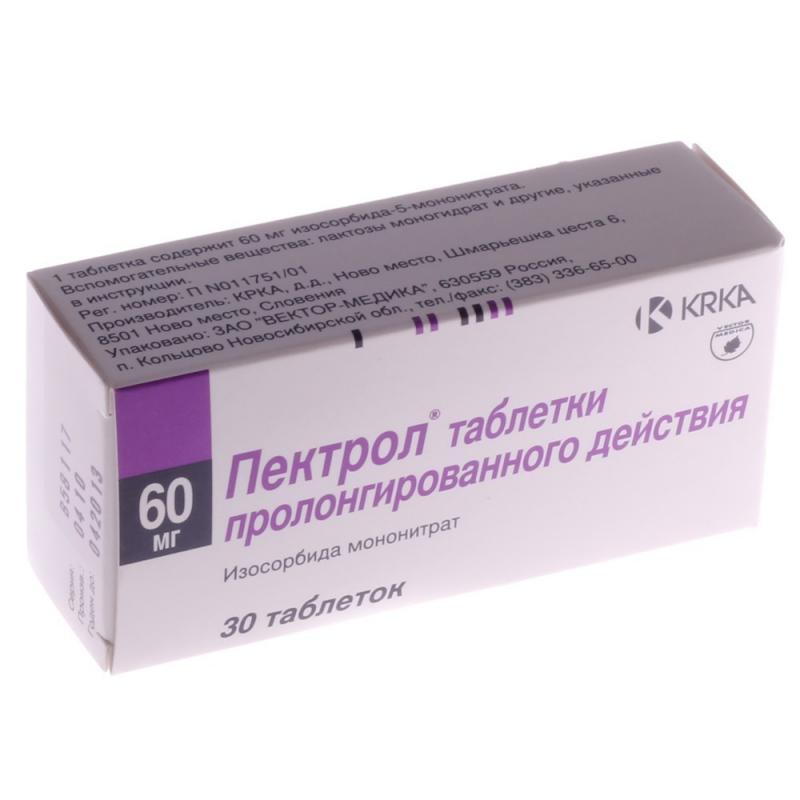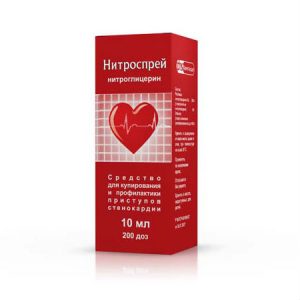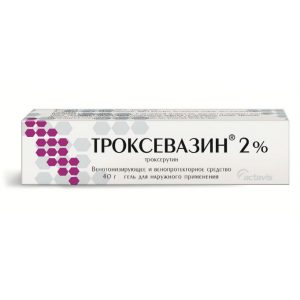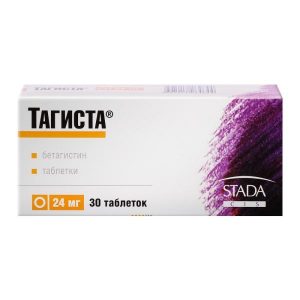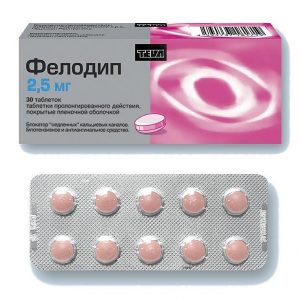Description
Release form
Sustained-release tablets.
Packing
30 pcs.
Pharmacological action
Peripheral vasodilator with a primary effect on the venous vessels.
Pectrol stimulates the formation of nitric oxide (endothelial relaxing factor) in the vascular endothelium, causing activation of intracellular guanylate cyclase, which results in an increase in cGMP (vasodilation mediator). Vasodilation reduces the venous return to the heart (preload), reducing the load on the heart, which reduces the oxygen demand of the myocardium. The dilating effect of nitrates on arteries and arterioles reduces OPSS (afterload).
Pectrol has a coronary expansion effect. Reduces blood flow to the right atrium, helps to reduce pressure in the pulmonary circulation and regression of symptoms in pulmonary edema. Promotes redistribution of coronary blood flow in an area with reduced blood supply.
Pectrol increases exercise tolerance in patients with coronary artery disease, angina pectoris. Expands the vessels of the brain, dura mater, which may be accompanied by a headache. It inhibits platelet aggregation, reduces platelet thromboxane synthesis.
As with other nitrates, cross tolerance develops. After cancellation (interruption of treatment), sensitivity is quickly restored.
Antianginal effect occurs 30-40 minutes after ingestion and lasts up to 8-10 hours.
Indications
Prevention of angina attacks in patients with coronary heart disease
Chronic heart failure (as part of combination therapy).
Contraindications
Hypersensitivity to nitrates or other components of the drug.
Arterial hypotension and hypovolemia (systolic blood pressure below 100 mmHg, diastolic blood pressure below 60 mm Hg, central venous pressure below 4-5 mm Hg)
Acute heart failure
Shock
Vascular collapse
Left ventricular failure with low end diastolic pressure
Acute myocardial hypertension )
Cardiac tamponade
Toxic pulmonary edema
Diseases of
Accompanied by increased intracranial pressure (including hemorrhagic stroke, traumatic brain injury)
Lactation period
Age to 18 years (efficacy and safety not established).
Caution:
Mitral valve prolapse
aortic and / or mitral stenosis
tendency to orthostatic disturbances of vascular regulation
constrictive pericarditis
Advanced age
Severe anemia
thyrotoxicosis
Hypertrophic cardiomyopathy (possibly more frequent angina attacks)
renal failure
Liver failure (risk of methemoglobinemia) .
Special instructions
Pectrol is not intended to relieve an attack of angina pectoris.
The proper use of isosorbide mononitrate ensures a period with a low concentration of nitrate, which is necessary to prevent the development of tolerance to nitrates.
As with all nitrates, it is important to strictly follow the instructions for dosing Pectrol and observe the 12-hour interval between doses. In this case, a period of low concentration is achieved.
Composition
Active ingredient:
Isosorbide-5-mononitrate 60.0 mg.
Excipients:
Hypromellose
Carnauba wax
Purified stearic acid
Lactose monohydrate
Magnesium stearate
Silicon dioxide purified
Talc
Titanium dioxide srdlkrd iron Oxide red.
Dosage and administration
Pectrol is taken orally after a meal, swallowed whole and washed down with a glass of water. The usual initial dose is 40 mg once a day (in the morning). The dose of the drug can be increased to 60 mg once a day or up to 80 mg (40 mg 2 times a day).
Side effects of the
From the cardiovascular system: “nitrate” headache, dizziness, transient hyperemia of the facial skin, sensation of heat, tachycardia, marked decrease in blood pressure in rare cases – increased angina attacks (paradoxical reaction), orthostatic collapse.
From the gastrointestinal tract: nausea, vomiting, there may be a sensation of a light burning sensation of the tongue, dry mouth.
From the side of the central nervous system: stiffness, drowsiness, blurred vision, decreased ability to quickly psychic and motor reactions (especially at the beginning of treatment) in rare cases – cerebral ischemia.
Allergic reactions: skin rash, in some cases – exfoliative dermatitis.
Others: development of tolerance (including cross-tolerance to other nitrates).
Drug interaction
Pectrol ® with simultaneous use increases the concentration of dihydroergotamine in the blood plasma.
Barbiturates accelerate biotransformation and reduce the concentration of isosorbide mononitrate in the blood.
When used together with antihypertensive drugs, vasodilators, antipsychotics (antipsychotics), tricyclic antidepressants, novocainamide, ethanol, quinidine, beta-blockers, slow calcium channel blockers, dihydroergothenamine and dihydroergothenamine are possible.
With a combination of amiodarone, propranolol, slow calcium channel blockers (including verapamil, nifedipine), acetylsalicylic acid and Pectrol, an antianginal effect may be enhanced.
Influenced by beta-adrenostimulants, alpha-adrenergic blocking agents (including dihydroergotamine), a decrease in the severity of the antianginal effect (tachycardia, an excessive decrease in blood pressure) is possible.
When combined with m-anticholinergics (including atropine), the likelihood of increased intraocular pressure increases.
Adsorbents, astringents and enveloping agents reduce the absorption of isosorbide-5-mononitrate in the digestive tract.
Overdose
Symptoms: headache, dizziness, palpitations, hyperthermia, hyperemia of the skin, sweating, nausea, vomiting, diarrhea, methemoglobinemia (cyanosis, anoxia), hyperpnea, dyspnea, cerebrospinal pressure, cerebrospinal pressure, bradypardia, fainting, paralysis, coma.
Treatment: gastric lavage, with methemoglobinemia – inside or in / in ascorbic acid – 1 g, in / in 1% solution of methylene blue 1-2 mg / kg with severe arterial hypotension – in / in phenylephrine (mesatone). Epinephrine and its related compounds are ineffective.
Storage Conditions
In a dark place at a temperature not exceeding 25 ° C.
Deystvuyuschee substances
isosorbide mononitrate
Pharmacy terms of delivery
Prescription
Dosage form
tablet prolong.
Indications
Hronycheskaya failure circulation, angina
KRKA d.d. Novo mesto AO, Slovenia
